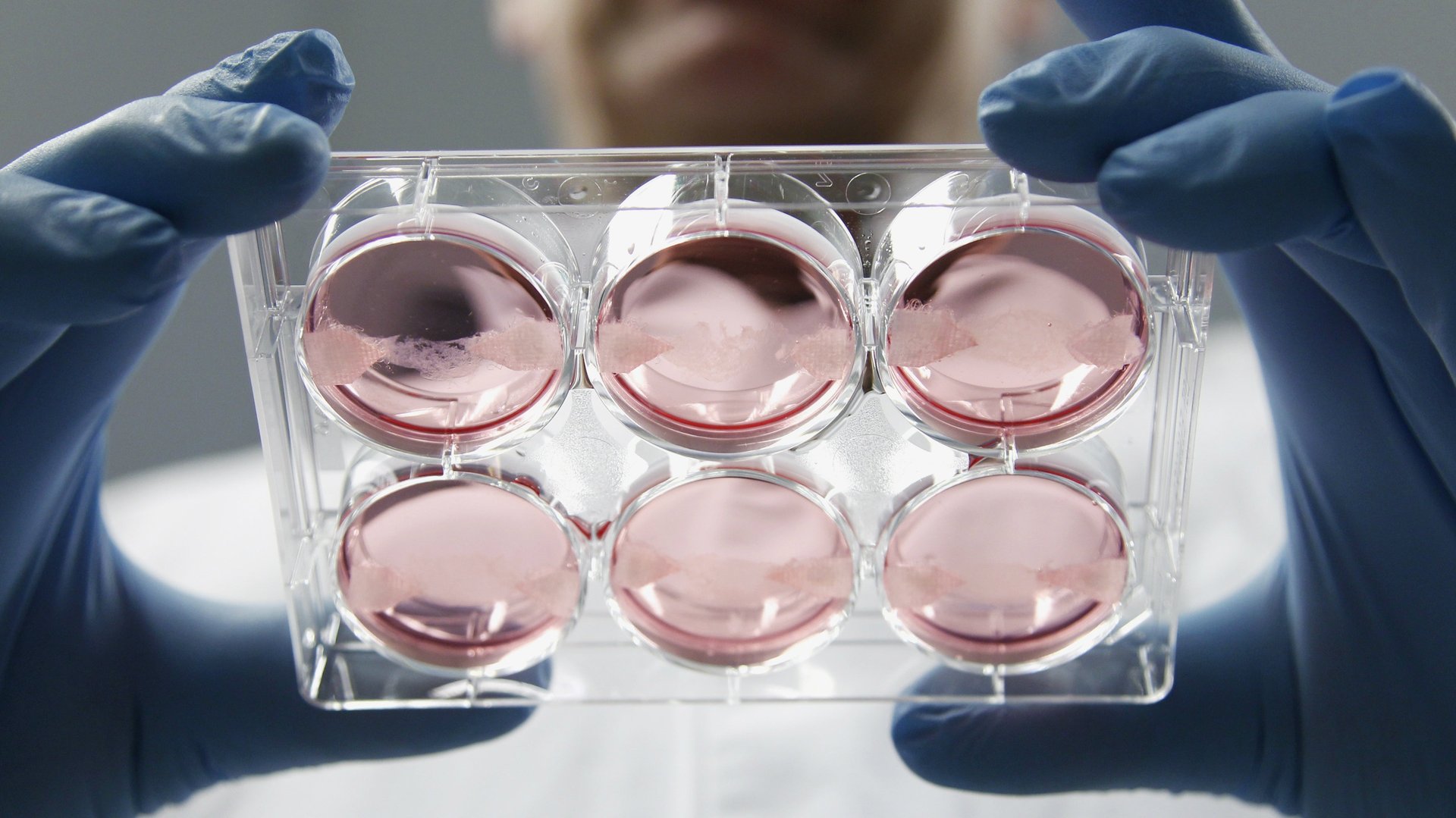Israel found an unlikely buyer for its lab-grown meat: China
China this week inked a deal with Israel that stands to give high-tech vegan meat companies an opening into the world’s most populous country.


China this week inked a deal with Israel that stands to give high-tech vegan meat companies an opening into the world’s most populous country.
“It is a colossal market opportunity,” says Bruce Friedrich, head of the The Good Food Institute (GFI), which supports and lobbies on behalf of meat alternative interests. ”This could put [lab-made] meat onto the radar of Chinese officials who have the capacity to steer billions of dollars into this technology.”
The $300 million trade agreement, announced on Sept. 11, will give Chinese firms the opportunity to partner with Israeli tech companies to tackle issues relating to emissions. It’s yet another signal that China is serious about tapering the amount of greenhouse gases it emits; the Chinese government last week (Sept. 9) said it was joining the UK, France, and India in taking steps to decrease the number of petroleum-powered cars sold in the country. That decision goes hand-in-hand with a new policy the government handed down last year, in which it committed to nudging its citizens to eat less meat and eggs. The animal agriculture industry is a major contributor to global emissions, and a growing problem in China.
These kinds of moves have caught the attention of companies racing to get lab-made meat—the kind being produced fiber-by-fiber in laboratories—to market. Right now, eight companies in the world are working to produce a scalable version of this high-tech, vegan meat and three of them are in Israel.
While the Israeli companies—SuperMeat, Future Meat Technologies, and Meat the Future—may get the first clear shot at the Chinese lab-made meat market, their competitors see the deal as an opportunity, too. Chinese meat imports were valued at more than $10 billion in 2016, according to the International Trade Centre, which means there’s a lot of room for meat alternative products to nip away at market share.
The Israeli government’s Israel Innovation Authority and the Israel Export Institute both took part in making of the deal with China. Both are interested in lab-made meat and were involved in the world’s first lab-made meat conference in Haifa, Israel earlier this year.
Israel’s tech economy is considered by some to be second only to Silicon Valley, which is home to several high-tech meat alternative companies, including Impossible Foods and Hampton Creek—both of which have received investment from Chinese billionaire Li Ka-shing.
“[China’s] version of Bill Gates is already backing these companies,” says Josh Balk, an animal-protection policy leader at the Humane Society of the United States. “I think all this runs into a pretty good theory that clean meat and other non-live animal protein sources will become bigger in China.”
On Tuesday (Sept. 12), the state-run China Science and Technology Daily published an article (in Chinese) that discussed embracing lab-made meat for reasons that included food safety, food security, and environmental reasons. “Imagine the future,” the article states. “You have two identical products, one is that you have to slaughter the cattle to get. ‘The other’ is exactly the same, and cheaper, no greenhouse gas emissions, no animal slaughter, which one would you choose?”